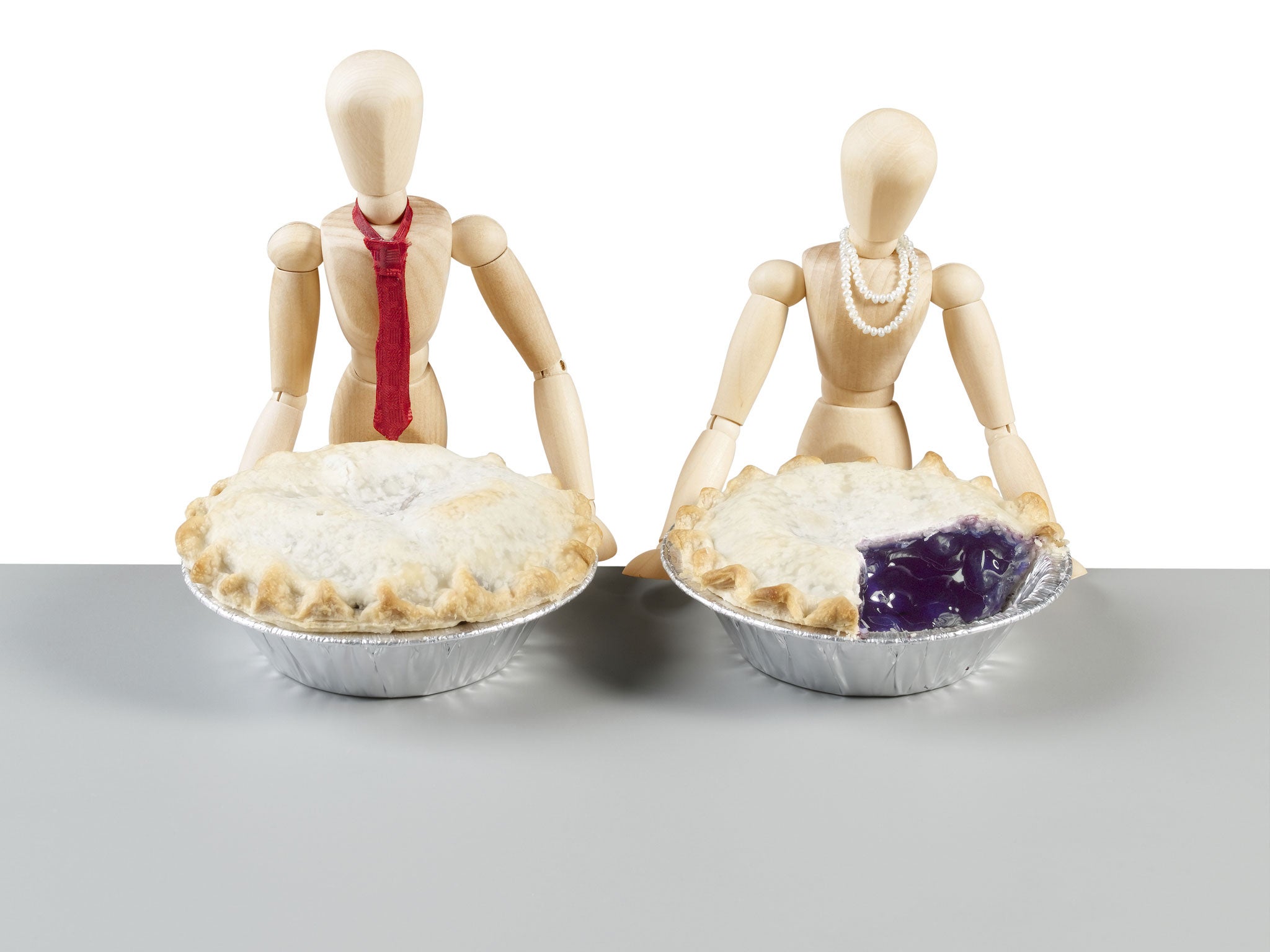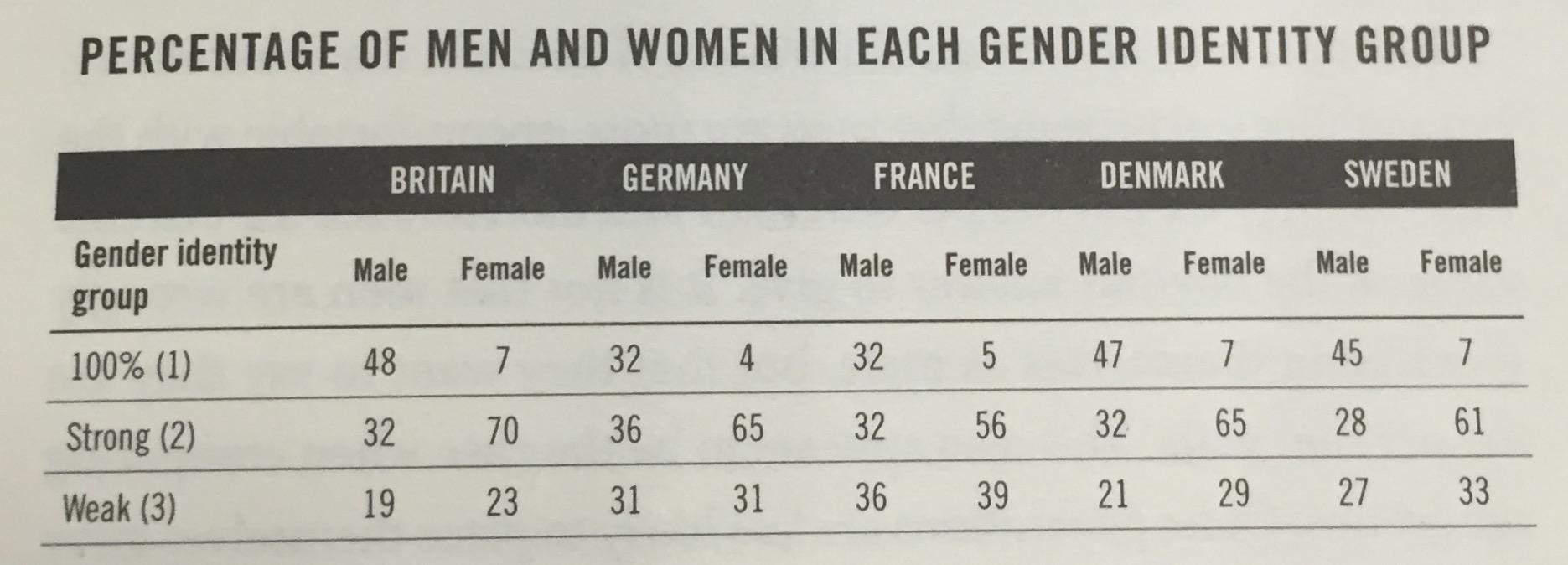The Independent's journalism is supported by our readers. When you purchase through links on our site, we may earn commission.
How much of a woman or man are you? These are the latest findings from gender identity research
Men are more likely to say they're 100 per cent male, while only 7 per cent of women say they're 100 per cent female


Men and women define their sex differently. Whereas half of all men say they are 100 per cent male, only 7 per cent of women say they are 100 per cent female. That is one of the revelations in More Sex, Lies and the Ballot Box, a book of election-related findings, edited by Philip Cowley and Robert Ford, published today.
It is not strictly to do with elections, but comes from a survey carried out by YouGov for the Nonbinary Inclusion Project after the company had looked at sexuality as a scale, and found that 19 per cent of people classify themselves as something in between 100 per cent heterosexual and 100 per cent homosexual.
Nicola Wildash, the author of the chapter on gender identities, reports that respondents were divided into three groups. Those who were “100 per cent” male or female, those who were “strong” (95 to 99 per cent), and those who were “weak” (6 to 94 per cent). This was after removing the 2 per cent of the initial sample of 14,000 people who put themselves at the opposite end of the scale (0 to 5 per cent) and another 2 per cent who answered “not sure”, which I thought was a shame. (It also makes you wonder whether the original classification of respondents as male or female is correct.)
Women were most likely to be in the “strong” group, a pattern that was repeated, less strongly, across Europe, whereas men were most likely to be 100-percenters, which was not true in Germany and France, where only one in three men say they are 100 per cent male.

Wildash asks: “What is causing this? Perhaps the scale was too difficult for some to understand or complete, but unless we are going to entertain the notion that women don’t understand scales and men do, that doesn’t offer an explanation for the sex differences we find.”
She speculates that men and women perceive the question (“Where would you place yourself on the following scale?”) in different ways. “Perhaps men are seeing this as a purely biological question [while] women might be thinking of their biology combined with personality and character traits.”
It may also reflect the well-known finding in almost all opinion polls, that women are more likely to reply “don’t know” to any question.
But, as Wildash says, the main explanation is probably the nature of modern-day masculinity: “Men are more uncomfortable with the idea that they are not 100 per cent male.”
Join our commenting forum
Join thought-provoking conversations, follow other Independent readers and see their replies
Comments